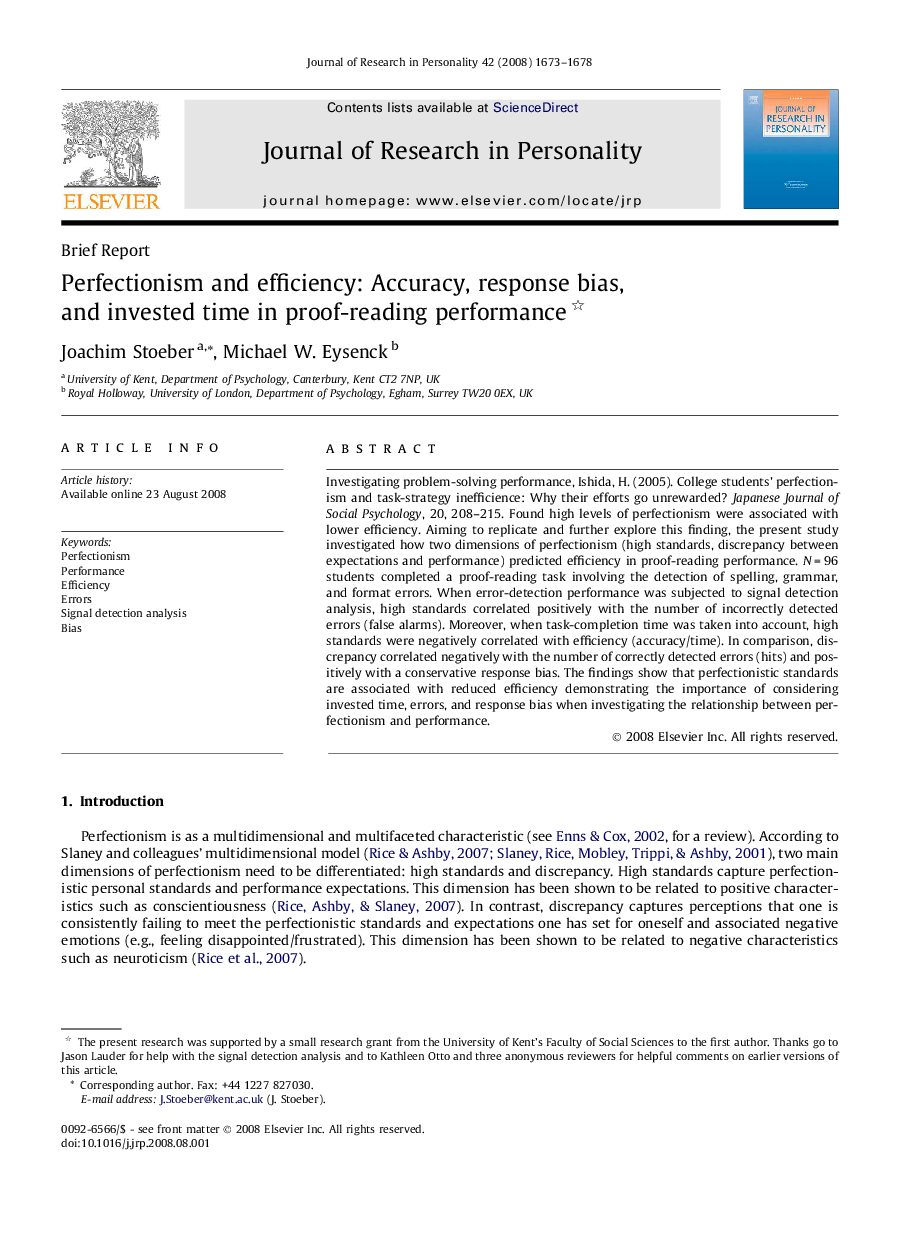| Article ID | Journal | Published Year | Pages | File Type |
|---|---|---|---|---|
| 952095 | Journal of Research in Personality | 2008 | 6 Pages |
Investigating problem-solving performance, Ishida, H. (2005). College students’ perfectionism and task-strategy inefficience: Why their efforts go unrewarded? Japanese Journal of Social Psychology, 20, 208–215. Found high levels of perfectionism were associated with lower efficiency. Aiming to replicate and further explore this finding, the present study investigated how two dimensions of perfectionism (high standards, discrepancy between expectations and performance) predicted efficiency in proof-reading performance. N = 96 students completed a proof-reading task involving the detection of spelling, grammar, and format errors. When error-detection performance was subjected to signal detection analysis, high standards correlated positively with the number of incorrectly detected errors (false alarms). Moreover, when task-completion time was taken into account, high standards were negatively correlated with efficiency (accuracy/time). In comparison, discrepancy correlated negatively with the number of correctly detected errors (hits) and positively with a conservative response bias. The findings show that perfectionistic standards are associated with reduced efficiency demonstrating the importance of considering invested time, errors, and response bias when investigating the relationship between perfectionism and performance.
